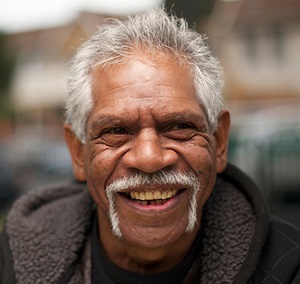“I was empathetic before the pandemic ... But being exposed to people at risk of serious conditions has made me even more aware of how people have been affected by the pandemic in a harder way than us.” – Marta Cifuentes.
Key points
- This year's Australian Unity Wellbeing Index, conducted in partnership with Deakin University, highlights the positive and negative effects of COVID19.
- One in three of the participants surveyed reported income-loss due to COVID-19 yet this did not appear to compromise quality family time.
- Improved work life balance and living more simply were also examples of the positives people reported during lock-down.
In a year like no other, Australians have displayed extraordinary levels of resilience while still being thankful for what they have.
The devastating effects of the COVID-19 pandemic can be seen across Australia and around the world.
But for Marta Cifuentes, in a year of stress and anxiety, there was still a sense of gratitude and satisfaction with her overall wellbeing.
“The pandemic has affected us the same way it has affected everyone,” Marta says. “I’m conscious of that and grateful that my husband’s role has been maintained and I have been able to finish my degree regardless.
“Not being able to see my family in Spain but also my friends and family here has been hard. There was less time to study and no time for self-care.
“While I have a strong sense of gratitude for what we have in our family and in Australia, it has been a sad year for my friends and family in Spain, with many of them contracting COVID-19 and four of them passed away.”

Finding meaningful positives
Marta is just one example of the resilience shown by Australians during an unprecedented period.
The latest findings of the Australian Unity Wellbeing Index show just how well people have handled the challenging times.
Surveyed between 27 April and 19 May 2020 – at the height of the first national COVID-19 lockdown – 2,000 Australians recorded an average personal wellbeing score of 76.45 (out of 100), which is within the normal range of the Wellbeing Index.
Measured using nationally representative data, these results remain consistent with findings over the 20-year history of the Wellbeing Index, indicating that Australians have retained a strong sense of life satisfaction, despite the many challenges faced throughout the year.
Individual wellbeing is closely associated with three key elements—financial security, strong relationships with others, and a sense of purpose in life—dubbed the ‘Golden Triangle of Wellbeing’.
Wellbeing is also influenced by people’s connectedness to their communities, good health and sense of personal safety and security about the future. Participants in the latest survey on COVID-19 reported high scores across each of these elements of wellbeing.
Report author, Associate Professor Delyse Hutchinson from Deakin University’s Centre for Social and Early Emotional Development, in the School of Psychology, said that “the findings speak to the resilience of the Australian community in the face of major stress and our adaptive capability as a society.”
“Despite it being such a challenging year on so many fronts, most Australians have also been able to find some meaningful positives to draw on,” Associate Professor Hutchinson says.
One in three of the participants surveyed reported income-loss due to COVID-19 yet this did not appear to compromise quality family time. Improved work life balance and living more simply were also examples of the positives people reported during lock-down.
Feeling grateful
The research also shows the majority of Australians reported feeling grateful for the things they have in life, with nearly all survey participants (96%) reporting having greater empathy for others and almost as many (96%) more gratitude for the things they have in life.
As a first-time parent, Marta and her husband Wayne’s biggest concern was keeping their three-year-old daughter Sofia safe.
But in addition, Marta says she became much more aware of how the pandemic had affected others in her community through her work as a trainee in the health care sector.
“I was empathetic before the pandemic and I don’t think it has changed my levels of empathy,” she says. “But being exposed to people at risk of serious conditions has made me even more aware of how people have been affected by the pandemic in a harder way than us.
“I have certainly reached out more to both family and friends to check in to see how they’re going.
“Before being a first-time parent, we had certain things we wanted to do but, like one of our friends says, ‘there are those who have principles, and those who have children’, which means being more permissive in general and choosing your battles, and this applies 500 per cent more in a time of a global pandemic.”
Supporting each other
Esther Kerr-Smith, Australian Unity’s CEO of Wealth and Capital Markets, notes how positive it is to see people draw on inner resources including gratitude and empathy to support not only their own wellbeing but also those of others.
But there is also an acknowledgment that some parts of the community found this more challenging than others.
“These findings should be a reminder to Australians that we need to support one another through and out of the pandemic,” Ms Kerr-Smith says.
“It’s critically important that we continue to support those most vulnerable in our society, people who may be impacted physically, economically and socially by the pandemic.
“For the two decades Australian Unity has supported the Wellbeing Index we have consistently seen that financial wellbeing or economic empowerment is just as important as health, as a determinant of someone’s personal wellbeing score.
“We all play a role in making sure no one is left further behind.”
As part of this task, Deakin University, in conjunction with Australian Unity, will continue to track the wellbeing of Australians over 2021-2023, monitoring any longer-term impacts on the community in relation to the COVID-19 pandemic.
The full report can be viewed at: http://www.acqol.com.au/publications#reports
